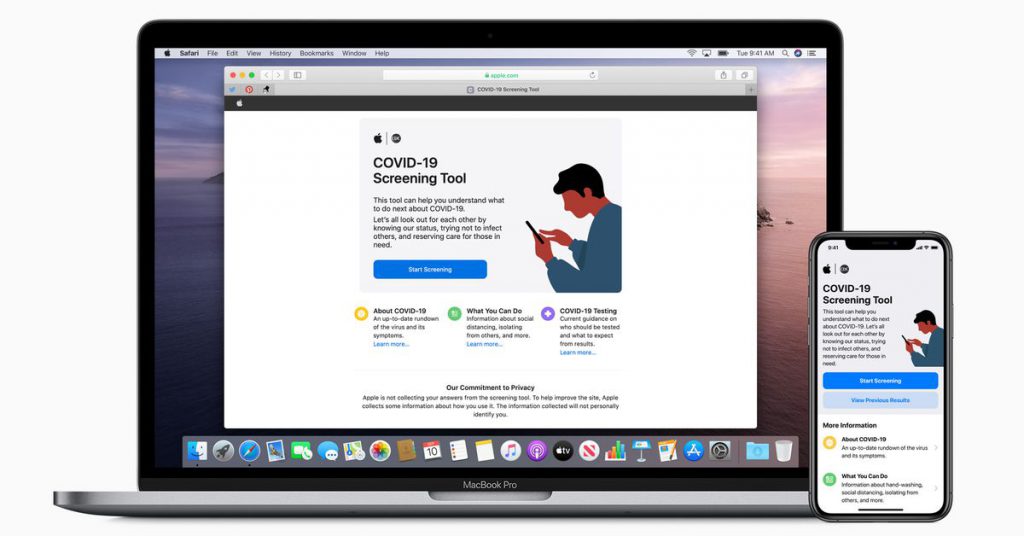iPhone users can now ask Siri for help if they think they may have the coronavirus.
On Friday, Apple announced the launch of its new COVID-19 website and app. Both provide coronavirus resources as well as a screening tool to help people figure out what to do to minimize the spread of the virus. Both are now live, online and in the App Store, respectively.
“The COVID-19 app and website allow users to answer a series of questions around risk factors, recent exposure and symptoms for themselves or a loved one,” explains Apple in a statement. “In turn, they will receive CDC recommendations on next steps, including guidance on social distancing and self-isolating, how to closely monitor symptoms, whether or not a test is recommended at this time, and when to contact a medical provider.”
Users can also know ask Siri, “How do I know if I have coronavirus?” Upon being asked, Apple’s virtual assistant will provide users with resources from the CDC as well as a curated collection of telehealth apps from the App Store.

According to Apple, the site and mobile app were created in partnership with the CDC, the Coronavirus Task Force, and FEMA in order to “make it easy for people across the country to get trusted information and guidance at a time when the US is feeling the heavy burden of COVID-19.”
The basic information on Apple’s site and its app is very similar to the coronavirus resource created by Google that launched earlier this week. However, Apple also offers an interactive screening tool.
It asks users a series of questions concerning any coronavirus-related symptoms they or their loved ones may be experiencing, a simple health history, where they live or work, if they’ve been in contact with anyone who has tested positive, and more. Using the answers, Apple’s tool helps users determine whether they should self-isolate or seek medical help.
The company says all the user data provided in the screening tool is private and secure. Neither the website or the app require a signup or login.
Apple reminds users that these tools are meant to be a quick resource for individuals and are not meant to replace advice from healthcare professionals or state and local health officials

